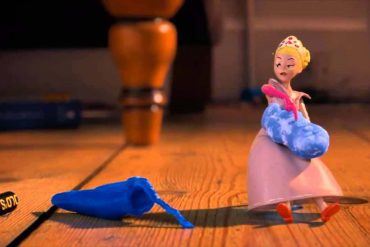For deep learning, we need to keep few things in check:
1. This is not a punishment
When we come from a place of punishment, the need of wanting to “teach the lesson” in a punitive way quickly spills into the scenario and will actually take away from the actual learning experience. Children are so aware, and they always sense where we are coming from. The truth is that if we don’t keep our emotions in check and become frustrated with the behaviour or requests being made, we will quickly be on the fast track to shaming and punishing.
2. No judgement!
Be mindful of your judgemental thoughts:
“She is such a brat, how can she even ask for TWO of the same toys!”
“I just bought her toy last week and now this!!”
“Can she just STOP with the whining!”
“She’s throwing a fit in the middle of the store, right after I tell her that I’m actually willing to buy one toy for her, how ungrateful of her!”
It can be hard not to get caught up in judgment. It is up to us to reframe and then reframe some more, and force ourselves to see the world through our children’s eyes. Empathy is critical if you want to eliminate judgment, so acknowledging feelings and stepping into sincere empathy will help create a healthier dialogue within yourself regarding your child’s behaviour.
The truth is that if we don’t keep our emotions in check and become frustrated with the behaviour or requests being made, we will quickly be on the fast track to shaming and punishing.
3. Don’t rub it in
To make the most of a lesson that comes from natural consequences, we have to be extra careful not to “rub it in”. Through big lectures and extra judgment is how shame creeps in and quickly ruins the beauty and fairness of a natural consequence.
When we add shame to the mix, our children will often feel resentful towards the lesson – and us. Shame predominantly creates one of two feelings (often it is a mixture of both). First, shame can lead children to believe that they are inherently “bad.” – internalising the shame. Secondly, shame creates feelings of unfairness that will often lead to wanting to push back. So it becomes more likely that they will dig their heels in, close up and not take on the learning.
Try to steer away from comments like:
“Yeah, see??? this is what happens when you can’t make up your mind!”
“I WAS ready to buy you one toy, but because of your actions now you get NO toy…”
Children don’t need us to explain the consequences to them. If we non-judgmentally sportscast/narrate what is happening, and sincerely acknowledge feelings along the way, they will get it, they will feel it, they will understand in their own powerful way, they will internalise it and they will learn from it.
Children don’t need us to explain the consequences to them.
Staying neutral is key
It is a challenge for every one of us to allow a sequence of consequences to play out neutrally. Holding an empathetic space with confidence for any experience is anything but easy. Supporting them through whatever emotions might come up when life disappoints without taking over or interfering with the experience is an even greater challenge.
It takes deep trust in the process and lots of practice but it is so worth it. Not only will our children learn so much more from the experience but so will we!
Kristin Mariella from respectfulmom.com is a worldwide parenting educator, author and mum of three. Kristin has become well known for her powerful parenting workshops, writing and social media shares. With a large following and global reach, her focus is on shifting mindsets and to inspire parents to become more intentional in their parenting journey. Kristin shares relatable and engaging personal experience, insight and knowledge at the same time as she opens up and connects on a deep level with parents and caregivers around the world.










